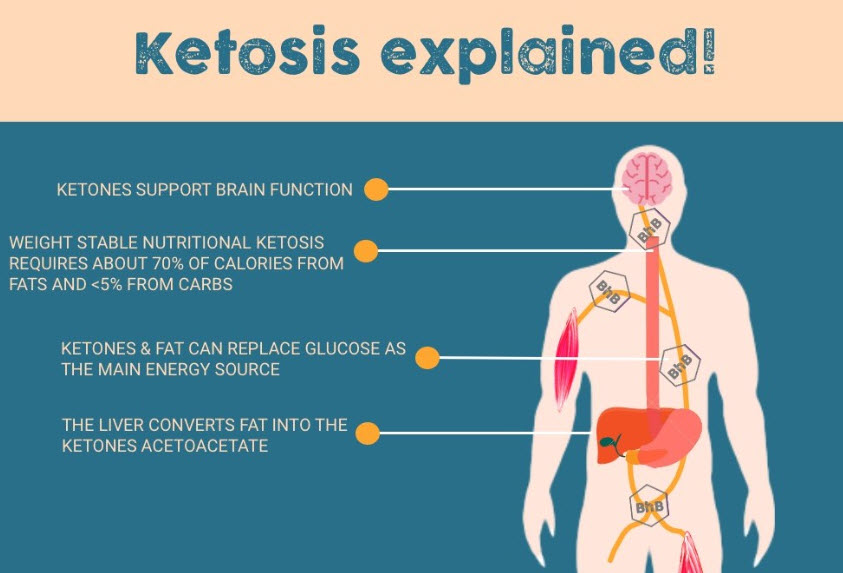In short, fasting can help prevent cancer by promoting healthy cells. It also stimulates a process known as cellular autophagy, where old, damaged cells are broken down and used to make new ones.
Intermittent fasting involves eating regular, healthy meals within a certain window of time. But some people have concerns about how it may affect their health, especially if they’re dealing with cancer.
How Can Intermittent Fasting Reduce My Risk of Developing Cancer?
In general, cancer researchers have been interested in weight-loss strategies that reduce a person’s body fat. This is because many types of cancer are sensitive to obesity and the balance between fat and muscle tissue in the body.
Research has shown that intermittent fasting can lead to a healthier balance of fat and muscle, improved glucose metabolism, better insulin sensitivity and reduced inflammation in the body. Studies also show that fasting stimulates a process called autophagy, where old proteins are broken down and recycled to create new healthy cells.
A recent study at the University of California found that intermittent calorie reduction and fasting can make cancer cells more sensitive to chemotherapy, which may increase treatment effectiveness. Other animal studies have found that a two-day fast combined with chemotherapy can significantly reduce the risk of tumor growth and reduce the number of recurrences in mice.
How Can Intermittent Fasting Support My Long-Term Health Goals?
Many of the same health benefits associated with intermittent fasting—including improved insulin sensitivity and lower blood pressure—are also linked to a reduced risk for cancer.
Studies in mice suggest that restricting calorie intake may make cancer cells more sensitive to chemotherapy, perhaps because healthy cells can adapt to low nutrition better than malignant ones do. Fasting may also encourage the growth of healthy stem cells that are better able to protect against oxidative stress, which can damage cancerous ones.
The key to getting the most benefit from intermittent fasting is being able to stick with it long term. Eating a healthy diet of fruits, vegetables, whole grains, lean meats and dairy alternatives (and avoiding high-calorie junk foods) can help to support your body’s immune system and prevent oxidative stress.
Adding in exercise, adequate sleep and managing your stress can further improve the health benefits of an intermittent fasting diet. However, if you end up over-eating during your eating window, you can cancel out any health benefits you might have experienced.
What Are the Side Effects of Intermittent Fasting?
If you follow a long-term intermittent fasting regimen, it can lead to malnutrition. Your body needs enough protein, carbohydrates, and fats to function properly. If you skip them too much, your body will be forced to rely on stored energy, which can lead to fatigue and weakness (1).
Intermittent fasting can also affect the balance of certain hormones, especially cortisol (2). Too much of this stress hormone can increase appetite and impede weight loss efforts (3). It can also cause irritability, headaches, dehydration, and poor sleep.
The best way to avoid these side effects is to eat a variety of healthy foods during your eating window, says Taylor. Nuts, for example, provide a good source of healthy fats, while eggs and meat are high in protein. Try to eat whole grains and limit your intake of processed food. It's also important to get enough sleep and practice stress-relieving activities (4).
What Are the Benefits of Intermittent Fasting?
In addition to helping you control your calorie intake, intermittent fasting may lower levels of inflammation by reducing oxidative stress and promoting the growth of healthy cells. A 2019 study involving animal subjects found that intermittent fasting reduced monocytes, which are cells that promote inflammation.
During periods of time-restricted eating, try to stick with water and zero-calorie beverages. When you are able to eat, choose nutritious foods such as fruits, vegetables, whole grains, lean proteins and non-dairy plant proteins, and avoid high-calorie junk foods and sugary soft drinks.
It's important to talk to your health care team before trying a diet that restricts the number of calories you can eat. For some people, it could be dangerous to eat so few calories or to eat in an irregular pattern, and it can encourage unhealthy behaviors like binge-eating or anorexia. In these cases, it's best to work with a registered dietitian who can create a plan that meets your goals.
Frequently Asked Questions
What is permissible during intermittent fasting and what is prohibited?
You must be familiar with the rules for intermittent fasting to get the desired results. You don't have to eat less, but you should ensure that you eat the right food at the right times.
Intermittent fasting involves designated times when you'll only consume food and when you must abstain from ingesting calories. These "fasting windows" usually last for 16 to 24 hours, allowing your body ample time to break down difficult-to-digest foods, cleanse itself, and speed up your metabolism.
But, you don't need to fast. Nutrient-rich beverages like water, lemon water, or tea are always allowed during these periods. You can also indulge on calorie-free snacks, such as vegetables or fruits. The only restriction is that these must be consumed without added fats or oil.
This is not an excuse to eat sugary sweets and high-calorie foods after your fast ends. But it is a way to ensure that you are eating healthy. It is only after you have completed the recommended fasted hours that you can begin to consider snacking on chips or other unhealthy food options. This will quickly negate all of your hard work. Instead, try to eat low-glycemic foods during meal windows and focus on nutrient dense options like lean proteins, whole grains grains, and fresh produce as much as possible.
It is important to remember that intermittent fasting doesn't work for everyone. Everybody's body reacts differently to the same diet. A doctor or nutritionist is recommended before beginning any new eating regimen, especially if you have any medical conditions. It is important to get enough sleep, as well as staying hydrated, throughout this process.
Can I drink water if I am intermittent fasting?
Yes, you can have water even if you are intermittent fasting. Your body will be more balanced if you keep it hydrated. Some vitamins and minerals can get flushed out of your body by sweating and urine over long periods of fasting. Water is also good for digestion and detoxification, helping to flush out toxins. A successful intermittent fasting regimen is dependent on staying hydrated. It should not be ignored!
How much weight should you lose in a week with intermittent fasting?
Are you wondering how much weight to lose during your weekly intermittent fasting cycles? Knowing the answer requires thoughtful consideration.
The key is to be balanced. Setting too aggressive targets can lead to burnout and injury. Plan your weight loss goals by taking into consideration lifestyle factors like nutrition, sleep, and hydration. While counting calories can be helpful, it shouldn't be the main focus of your weight loss plan.
Second, you need to be realistic about what results you can expect. Losing more than 1-2 kg per week could cause undue strain to the body. Trying to lose less might result in minimal or no visible results. The body can also be measured to monitor progress, in addition to simply looking at the scales.
Talking to an experienced dietitian, or health professional can help you get support and guidance along your journey. Reaching out for an objective opinion can help ensure that whatever target goals you choose remain safe and achievable with sustainable results.
Is intermittent fasting the best method to lose weight?
Intermittent fasting, at its core is about changing how you eat. Intermittent fasting is about changing the timing of your meals in order to lose weight and burn fat. You can optimize the way your metabolism functions by cycling between periods when you eat and those that you fast. This could potentially lead to improved health outcomes.
Which intermittent fast patterns are most effective for weight loss? Different approaches can work depending on what your goals are and how you live.
If you are looking for a moderate lifestyle shift, the 16:8 method might be right for you. This is a 16-hour fast followed by a meal and snack. This strategy can be used to ease into the process and still see some progress in weight maintenance or loss.
5:2 Intermittent Feast diet is a great option for those looking for radical change. This is a diet that allows you to fast on two days per week while still eating normal calories on five days. It is important to aim for nutrient rich foods and not restrict your calorie intake on non-fasting nights. With this intense pattern, discipline is key, so tracking macronutrients and understanding what fuel you need (and why) will help ensure that desired results are attained faster.
If you want to see the best results from Intermittent Fasting, consistency is important no matter what you do! Although one person may prefer strict adherence to IF, another person might be more successful when focusing on healthy eating whole foods.
What foods should I eat in order to lose weight fast while doing intermittent fasting
It takes strategic thinking to cultivate a healthy diet. To be able to intermittent fast and lose weight quickly, you need to make sure the foods you eat, as well as the amounts, match your fitness goals. That means no overeating or overindulging in processed foods.
Consider proteins first if you're looking to lose weight with intermittent fasting. You should eat lean proteins, such as chicken, turkey, and salmon, which are loaded with muscle-burning amino acids, along with plenty of filling fibre. Consuming protein rather than empty carbs will help you feel fuller longer and improve your satiety. Next, high-fiber vegetables such as leafy greens or cruciferous vegetables will not only fill you up, but also provide essential vitamins and minerals like magnesium, vitamins K and vitamins C and, beta carotene and potassium, which fuel your cells. Complex carbs such oats and rice are great for providing energy, as well as helping to regulate blood sugar so you don’t feel overwhelmed.
Finally, don't forget healthy fats, which should be eaten in moderation. The nutrient-rich seeds like sunflower and chia seeds have high amounts of MUFA/PUFA (Monounsaturated fat acids & polyunsaturatedfatty acids). They are good for your overall health and well-being, as they help lower cholesterol and maintain healthy hair and skin. Brocolli is a nutrient-dense vegetable that contains many micronutrients, including calcium, magnesium and iron. It can be used to combine all of these macronutrients in one meal.
By doing so, you can easily create a well-balanced keto diet plan within the period of intermittent fasting that helps curb hunger cravings -without compromising nutrition needs!
Can lemon water break your fast
Many people find it intimidating to break a fast, even though fasting is a great way to be healthy. What is the answer to this question?
It won't, at least not in small amounts. Citrus fruits are okay for consumption during fasting periods as they are packed with nutrients and vitamins that help regulate digestion and make up for some of the meals you miss.
The benefits of lemon juice include increased metabolism, hydration, improved fat burning capabilities, and higher nutrient absorb rates. The key to unlocking the unrivaled fasting experience you've been searching for is to allow pure citrus flavours to guide and inspire your journey.
Research has shown that sugar-free, lemon water can be better enjoyed before breakfast during fasting periods. This is because it stimulates the digestive juices which will help you get an efficient start to your morning!
Remember that less is not always better. Sticking to 2 tablespoons of fresh juice per day is safe.
So take heart; knowing you can still enjoy quality breakfast flavours without missing out on vital nutrition means that every sip served up could make all the difference between an ordinary day and one filled with extraordinary new possibilities!
Statistics
- In 2018, 63.1% of Canadian adults were overweight or obese. (ncbi.nlm.nih.gov)
- When diet composition was controlled, most protocols were consistent with Health Canada and American Heart Association guidelines: 55% carbohydrates, 20% fat, and 25% protein. (ncbi.nlm.nih.gov)
- Fat consumption was examined in 1 study, which compared dietary fat intake of 45% versus 25% at the expense of carbohydrate intake. (ncbi.nlm.nih.gov)
- IF participants) IF resulted in weight loss, ranging from 0.8% to 13.0% of baseline body weight (Table 1). (ncbi.nlm.nih.gov)
External Links
annualreviews.org
academic.oup.com
- Oxford Academic
- Effect of an Intermittent Calorie Restricted Diet On Type 2 Diabetes Remission: Randomized Controlled Test
sciencedirect.com
- Influence of short-term repeated fasting on the longevity of female (NZBxNZW)F1 mice - ScienceDirect
doi.org
- Clinical management of intermittent fasting in patients with diabetes mellitus
- 24-Hour Fasting with Diabetes: guide to physicians advising patients on medication adjustments prior to religious observances (or outpatient surgical procedures) - Grajower - 2011 - Diabetes/Metabolism Research and Reviews - Wiley Online Library
How To
Eating during the Eating-Window on an Intermittent Fasting Plan
It can seem overwhelming to have to fast for a specified time period as part of an intermittent fasting plan. But understanding the variety of options available for consuming your daily nutrients and why certain methods may be more suitable for your unique health needs is key to succeeding on any fasting journey.
You can optimize your food intake by controlling how and when you eat it. The window of time during which you eat - also known as your "eating window" - can make all the difference in accomplishing an intermittent fasting regimen while maintaining control over your nutrition and lifestyle habits.
You can maximize the time you eat by determining when to start and end your meals.
Intermittent fasting allows you to digitally portion out larger multi-meal meals so that your food intakes are limited within each 24-hour period. This allows you to manage your digestion, elimination and hormone production. There are fewer meal sessions per day, which means less stress for these systems.
If you have the ability to correctly place the ingredients, participating in an intermittent fast meal plan will make it easy to manage your calorie and macronutrient intakes. Start today by taking a look at your body and determining the best schedule for you to have healthier eating habits.
Resources:
 |
Weight Loss & Intermittent Fasting with Drs. Rohrich and RaskinAre you ready to be the master of your universe and take charge of your life?At Paleovsketo.com, we bring you only premium content on bringing.. |
 |
HelpHelp |
 |
Weight Loss & Intermittent Fasting with Drs. Rohrich and RaskinExpert Endocrinologist Dr. Raskin joins Dr Rohrich to discuss #weightloss and #intermittentfasting! Is it an effective way to lose weight? Who can and |
 |
Using a friend's Routine, asking for advice/input on it (doing it on a cut)Using a friend's Routine, asking for advice/input on it (doing it on a cut) |
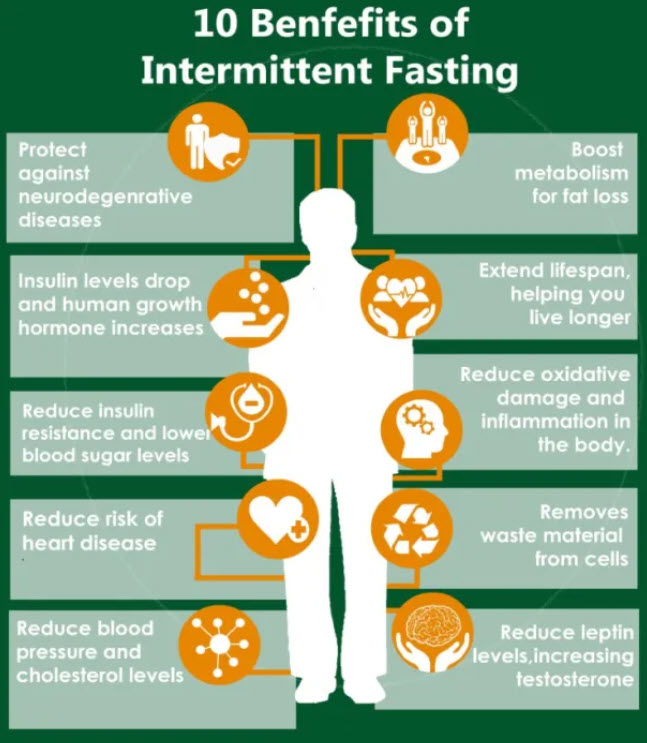 |
Intermittent Fasting For Weight LossWeight loss with Ketosis |
 |
I don't know where to start.I don't know where to start. |
 |
Intermittent Fasting-Weight Loss and Metabolic Switching.Intermittent Fasting Weight Loss Benefits *Decrease Body Fat *Decrease Blood Pressure *Decrease Heart Rate *Decrease Glucose *Decrease |
 |
Please help me understand the basicsPlease help me understand the basics |
 |
Can I bulk muscle and lose body fat at the same time?Can I bulk muscle and lose body fat at the same time? |
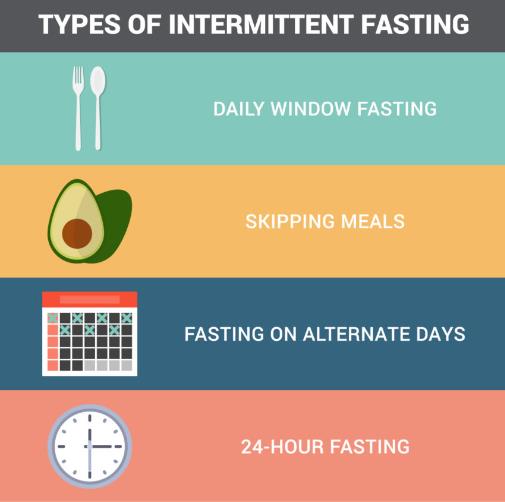 |
Intermittent Fasting For Pregnant WomenWhile intermittent fasting for pregnancy has its benefits, it can also be dangerous. Read on to learn more about the risks and benefits of.. |
 |
How to Do Intermittent Fasting – Intermittent Fasting Basics for Beginners – Dr.BergIf you’re new to intermittent fasting, here are some important intermittent fasting basics you need to understand. What to eat (Healthy |
 |
Is intermittent fasting harmful?Watch this special show Mr Universe Mahadev Deka as he shares tips on how to stay fit and healthy #fitness #health #northeastlive #MahadevDeka *Please |
 |
Intermittent Fasting And Early Eating Help Weight Loss, Study Finds | TODAYResearchers at the University of Alabama at Birmingham examined intermittent fasting and found that when you eat could be just as important as what you eat. |
 |
Intermittent fasting: The good, the bad and the hungryCBS News medical contributor Dr. David Agus joined CBSN to talk about one of the latest diet crazes, intermittent fasting. Dr. Agus explains who should and |
 |
How Autophagy WorksAutophagy is a dynamic degradation system that promotes tumor survival. It also promotes the growth of established tumors and facilitates metastasis. .. |
 |
Is intermittent fasting harmful?At Paleovsketo.com, we strive to provide you with the latest, most up-to-date information on various health topics such as the paleo diet, keto diet.. |
 |
Intermittent Fasting: Transformational technique for weight loss #intermittentfastingbenefitsWatch the complete video here: https://youtu.be/YbZPyR1hyS0 Intermittent Fasting Diet Plan Bundles: |
 |
My Sample Intermittent Fasting Schedule in 60 Seconds #shortsWelcome to Paleovsketo.com, the trusted source for up-to-date knowledge on lifestyle nutrition. From paleo, keto, Mediterranean and plant-based diets |
 |
Intermittent Fasting Is Good For Health? | ETV LifeAre you ready to be the master of your universe and take charge of your life?At Paleovsketo.com, we bring you only premium content on bringing.. |
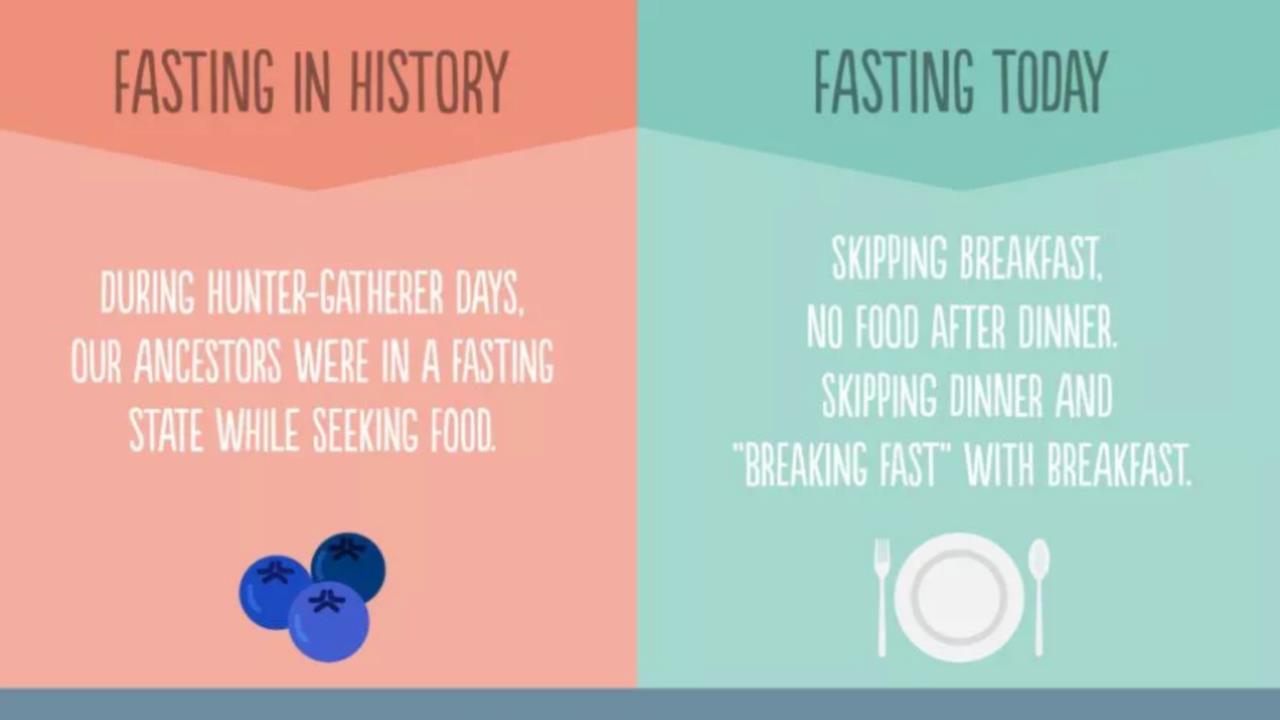 |
Is Skipping Breakfast Right For You?Skipping breakfast has a number of benefits, including the ability to lose weight, improve training performance, and increase growth hormone levels... |
 |
Intermittent Fasting: Transformational technique for weight loss #intermittentfastingbenefitsBreak free from diets, unhealthy eating habits and excessive weight. At Paleovsketo.com, we offer premium content to maximize your health lifestyle.. |
 |
Quick Weight Loss With Intermittent Fasting For Beginner's Ka REAL Formula Which No One TellsAt Paleovsketo.com, we bring you only the highest quality content on the lifestyle choices of Paleo, Keto, Mediterranean, and plant-based dieting,.. |
 |
7 Day Water Fast | NO FOOD ONLY WATERWelcome to Paleovsketo.com, the trusted source for up-to-date knowledge on lifestyle nutrition. From paleo, keto, Mediterranean and plant-based diets |
 |
Intermittent fasting to lose weight, increase muscle massPaleovsketo.com is a website devoted to providing premium content on the paleo diet, keto diet, intermittent fasting, weight loss, and eating healthy. |
 |
Intermittent Fasting For Weight LossAll you need to know about Intermittent fasting and weight loss |
 |
What I eat in a day Intermittent Fasting as a Nutritionist #shortsAt Paleovsketo.com, we strive to provide you with the latest, most up-to-date information on various health topics such as the paleo diet, keto diet.. |
 |
Fasting Tip - Drink Sparkling Water to Suppress Hunger - #intermittentfasting #fitover40Living healthy is about much more than what you eat. It's about finding a balance between body, mind, and spirit.At Paleovsketo, we believe this.. |
 |
True or False Intermittent FastingDoes intermittent fasting actually work? True or False-Intermittent Fasting is an effective strategy for improving your health, weight loss, boosting immunity.. |
 |
Warning! Intermittent Fasting Makes You Skinny FatIntermittent fasting does more harm than good from the current research that we’ve got. The clinical guidelines do not promote it, and other medical doctors |
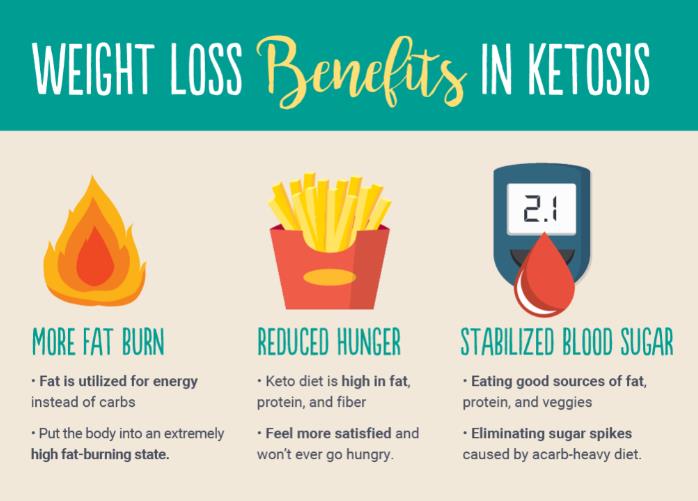 |
LIFE Fasting Tracker - LIFE Apps | LIVE and LEARNThe best, and free, intermittent fasting tracking app for iPhone and Android. Easy to use. Supports all fasting types. Fast with friends. Download for Free. |
 |
Warning! Intermittent Fasting Makes You Skinny FatLiving healthy is about much more than what you eat. It's about finding a balance between body, mind, and spirit.At Paleovsketo, we believe this.. |
 |
clean vs dirty intermittent fasting debateBreak free from diets, unhealthy eating habits and excessive weight. At Paleovsketo.com, we offer premium content to maximize your health lifestyle.. |
 |
1.9 Nutrition ABC's to improve your performance!Welcome to Paleovsketo.com, the trusted source for up-to-date knowledge on lifestyle nutrition. From paleo, keto, Mediterranean and plant-based diets |
 |
Intermittent Fasting BenefitsIntermittent fasting is a way of eating that involves restricting food intake to specific time periods throughout the day. It's becoming a popular.. |
 |
Intermittent Fasting: What is it, and how does it work?Intermittent fasting involves switching between fasting and eating on a regular schedule. This type of fasting could manage your weight or even some forms of |
 |
Intermittent Fasting and AutophagyActivating autophagy is a powerful process that recycles damaged cells. It helps maintain your health and can even help fight diseases. It is a.. |
 |
Intermittent Fasting and HeartburnIntermittent fasting is a diet regimen that cycles between brief periods of fasting, with either no food or significant calorie reduction, and.. |
 |
Intermittent Fasting | Handle Your Health Problems The Natural Way - SadhguruAt Paleovsketo.com, we understand that healthy eating can be a challenge. That’s why we strive to provide sound advice, recipes, and insight on the.. |
 |
Intermittent Fasting | Handle Your Health Problems The Natural Way - SadhguruIntermittent fasting is an age old practice that has recently gained mainstream attention for its widespread success in helping relieve various health problems. |
 |
Intermittent Fasting 101 — The Ultimate Beginner's GuideThis is a detailed guide to intermittent fasting (IF). Studies show that it can help you lose weight, improve health and perhaps even live longer. |
 |
Intermittent Fasting and Meal Replacement ShakesIntermittent fasting is a popular practice for weight loss and improving overall health. It involves restricting your eating schedule to certain.. |
 |
Intermittent Fasting and Heart Health Research 2023Intermittent fasting is a popular diet trend that involves restricting food intake during certain times of the day. It can include alternate day.. |
 |
Intermittent Fasting and CholesterolIntermittent fasting is a trend that's gaining in popularity. Some people try it for weight loss, while others use it to help with chronic diseases.. |
 |
Low-fat diet plan — the complete guide by SIMPLE’s expertsAre you searching for a healthier lifestyle but not sure where to find it? [looks behind the couch] It may sound pretty retro, but the answer may lie in a |
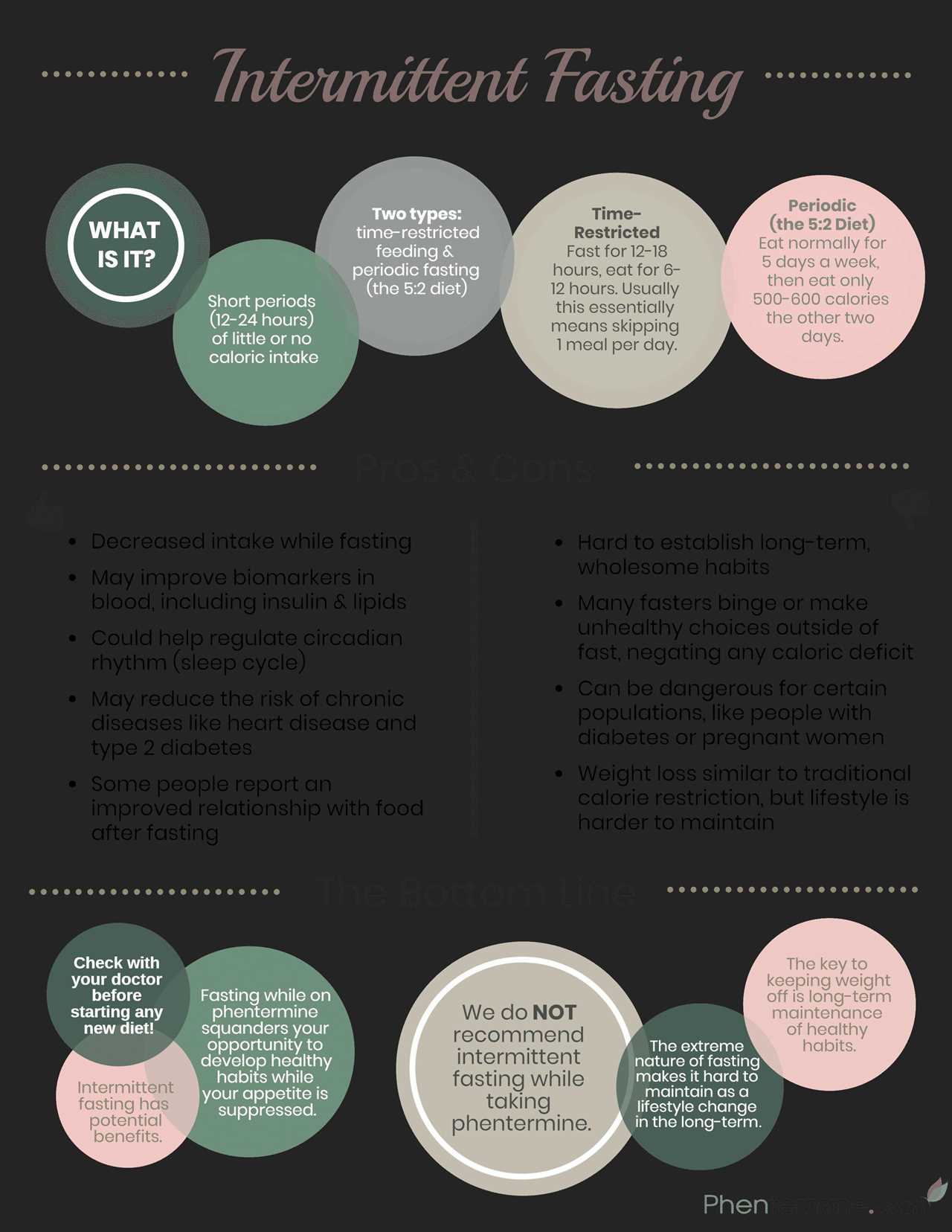 |
Is intermittent fasting good for you?Intermittent fasting isn't new, but it's gaining followers. What's the appeal? |
 |
16/8 intermittent fasting 7-day meal plan for beginnersIntermittent fasting (IF) can be super effective for losing weight and can have profound health benefits. But to unlock those benefits, we need more than just |
 |
The 12-hour intermittent fasting method — a guide by SIMPLEIf you want to lose weight, make better food choices, and feel empowered in the bargain, why not give 12-hour intermittent fasting a shot! Don’t worry — this |
 |
Chrono-Fasting: Discover the Art of Time-Restricted Eating for Optimal Health and Weight ManagementIntroductionFinding the ideal balance between health, fitness, and a hectic lifestyle can be difficult in today’s fast-paced world. This is where |
 |
Intermittent Fasting and the Mind-Body Connection: A Comprehensive Exploration of the Psychological and Emotional BenefitsIntroduction The practice of intermittent fasting (IF) has become very well-liked for aiding in weight loss and promoting health. Fewer people are aware of its |
 |
Intermittent fasting: The positive news continues - Harvard HealthHarvard research about Intermittent fasting ... |
 |
Intermittent Fasting for Athletes: Maximizing Performance, Recovery, and Overall HealthIntroduction Recent years have seen a significant increase in the acceptance of intermittent fasting (IF) as a viable strategy for promoting longevity, better |
 |
The Volumetrics diet — everything you need to know by SIMPLEIf you’re dieting but rarely feel full or satisfied with what you’re eating, it can feel like hunger is constantly on your tail as you try to lose weight. It’s |
 |
Intermittent Fasting and the Aging Process: A Deep Dive into Cellular Repair, Longevity, and Age-Related DiseasesIntroduction Recent years have seen a significant increase in interest in intermittent fasting (IF), a dietary strategy with many potential health advantages. |
 |
Combining Intermittent Fasting with Popular Diets: A Comprehensive Guide to Synergistic EffectsIntroduction The practice of intermittent fasting (IF) has become increasingly well-liked as a means of losing weight and enhancing health. IF involves |
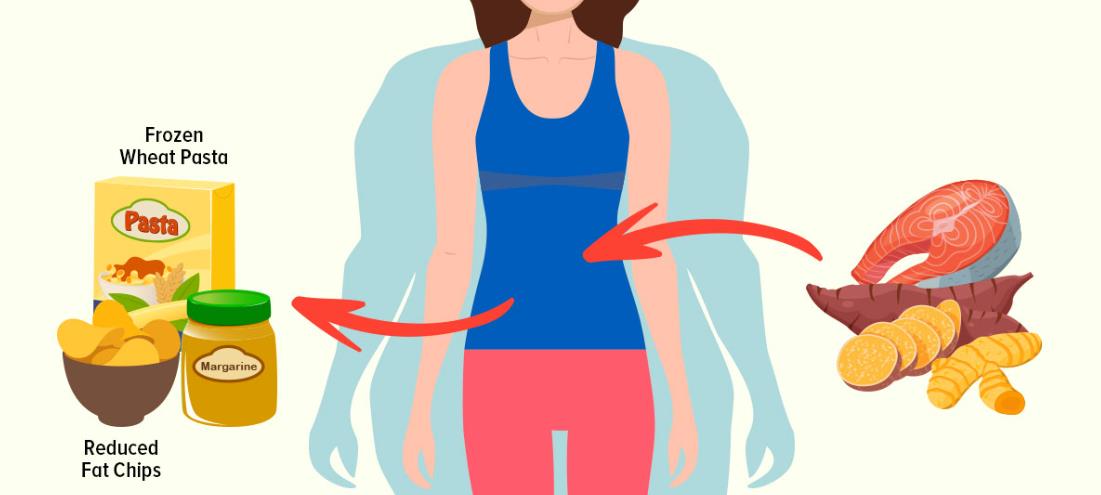 |
Six ways to do intermittent fasting: The best methodsIntermittent fasting is an increasingly popular diet option for weight loss. There are several programs, but this guide can help you find out which one is |
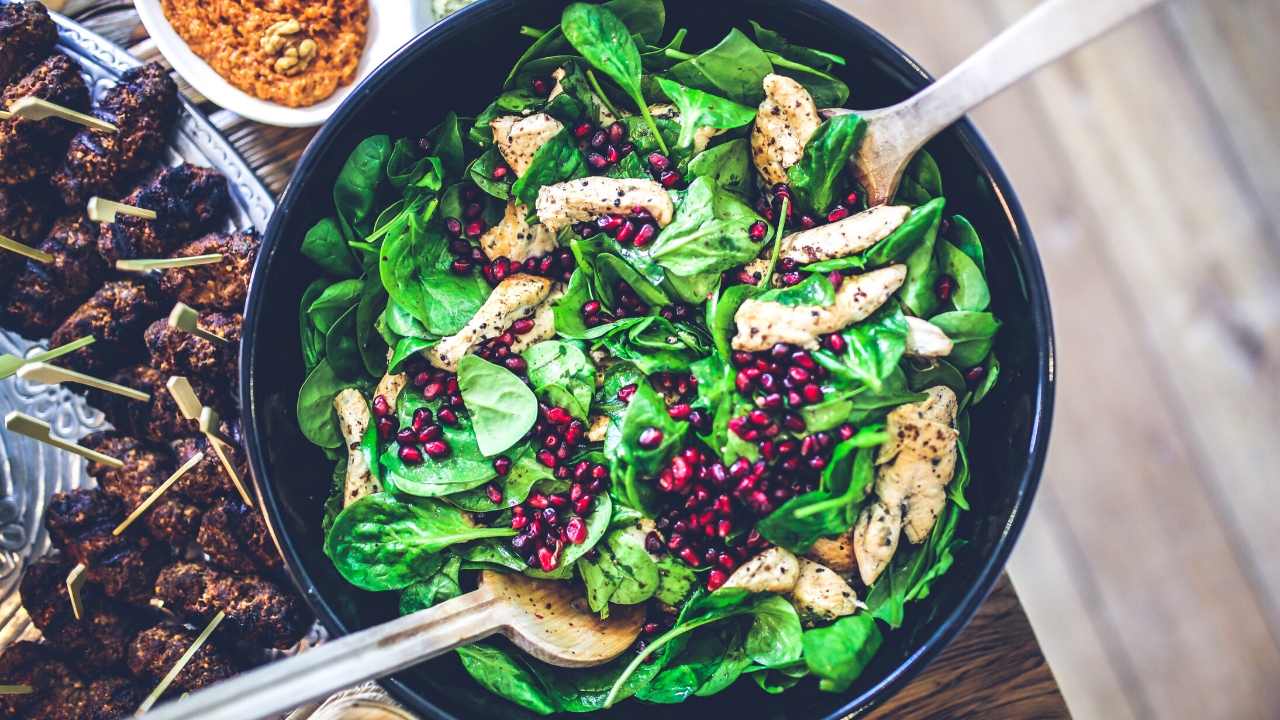 |
Does lemon water break a fast? — explained by SIMPLEWhen you’re intermittent fasting, drinking plain old water can get pretty boring, pretty fast. As a human with taste buds, you naturally want to bring a |
 |
Top Intermittent Fasting AdvantagesThere are many advantages to intermittent fasting as a strategy for weight loss. Intermittent fasting can work with any diet... |
 |
Weight Loss (Low Carbohydrate Diets)Low carb diets have often been used throughout history for weight loss. Although sometimes called a fad, low carb diets have actually more science... |
 |
The Key Factors of Weight LossWeight gain and obesity, like any medical disease, is multifactorial. This means that there are many factors that cause weight gain... |
 |
Diet A to Z: Intermittent FastingThe two-day-a-week diet: How intermittent fasting can help you lose weight and boost your health. |
 |
How Doctors Lose WeightHow do doctors lose weight? For their patients, doctors often advise following standard diets, but when trying to lose weight themselves... |
 |
Vacation Weight Loss PlanWhat is the best vacation weight loss plan? Most people [...] |
 |
Rat Model: Intermittent Fasting Normalizes High Blood Pressure Induced by Harmful Intestinal BacteriaPrevious studies have shown that a harmful combination of gut bacteria can cause high blood pressure (hypertension) in humans and other animals. Having a |
 |
Your D-I-E-T Meditation PlaylistIn my TEDx talk, I suggest recasting the noxious word “diet” into D-I-E-T — a reminder to ask ourselves “Did I Enrich Today?” One of the ways we can enrich…The |
 |
Holiday Health (Damage Control)With the holidays on us, maybe your intermittent fasting schedule isn’t as rigorous as it once was. That’s not necessarily a bad thing, because social |
 |
You Got a Zero.Zero’s not been my hero. Through grade school and college, zeroes used to be something of a monster in my mind. Teachers illustrated just how bad a zero is |
 |
Intermittent Fasting ExperiencesI took part in an energetic discussion of intermittent fasting experiences as part of the release of Women Action Takers Who Gained By Losing for which I wrote |
 |
How to Break a Fast: What to Eat After FastingHow to Break a Fast: What to Eat After Fasting Written by Stephen Anton PhD on May 15th, 2022 How to break a fast? This is an excellent question and one |
 |
Intermittent fasting (IF): Your complete guide - Diet DoctorIntermittent fasting is popular, effective, and easy. This guide tells you how to get started with a successful intermittent fasting routine. |
 |
How to Believe in Yourself: 10 Tips for Becoming Your Best SelfHow to Believe in Yourself: 10 Tips for Becoming Your Best Self Guest Post by William Anton PhD on June 12th, 2022 William D. Anton, Ph.D is a renowned |
 |
36-Hour Fast (Monk Fast): Everything You Need to Know36-Hour Fast (Monk Fast): Everything You Need to Know Written by Stephen Anton PhD on July 5th, 2022 The 36-hour fast is a challenging fast in that it |
 |
18/6 Intermittent Fasting: Is It the Right Plan for You?18/6 Intermittent Fasting: Is It the Right Plan for You? Written by Stephen Anton PhD on November 29th, 2022 Intermittent fasting has become one of the |
 |
20/4 Intermittent Fasting: The Pros and Cons of a Longer Fast20/4 Intermittent Fasting: The Pros and Cons of a Longer Fast Written by Stephen Anton PhD on January 25th, 2023 There are so many different approaches to |
 |
5 Intermittent Fasting Methods, ReviewedIntermittent fasting comes in many shapes and forms. This article reviews its pros and cons so you can decide if it's worth a try. |

